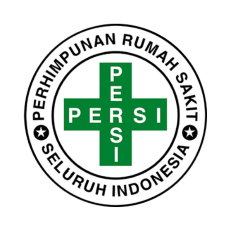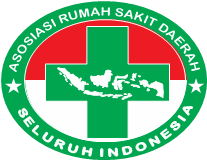Abstract
In the context of modern medicine, complexity hospital’s management is regarded as the primary cause of medical error (ME). The new healthcare paradigm of “Patient-Focused Care”, patient’s right to receive safe healthcare treatment is considered as main indicator in Standar Akreditasi Rumah Sakit of 2012 (SARS 2012) in Indonesia, through the implementation of 6 Patient Safety (KP) standards. In the category of emergency medical treatment, Sepsis is considered as a disease with high mortality and morbidity rate. The use of The International Classification of Diseases, based on Ninth Revision (ICD-9), have caused terminological confusion and contribute to the increase of sepsis mortality rate. Globally, sepsis’ mortality rate reaches 8 million/year or 24.000/day, with growth rate of 8-13% per-year. To ensure the effectiveness of KP standard implementation in sepsis medical treatment, a research on the implementation of 6 Targets of KP in RS Tebet is conducted. Using case study, qualitative and descriptive analysis, this research is performed in the course of April-May 2015. The research shows that effectiveness 6 Targets of KP implementation reaches 96,283%, with 5% margin of error. This research proves that implementation of 6 Targets of KP in healthcare treatment procedure for sepsis cases can reduce the risk of ME.
Bahasa Abstract
Dalam konteks pengobatan modern, kompleksitas sistem perumahsakitan dianggap sebagai faktor utama penyebab insiden kesalahan medis. Dengan paradigma ”pelayanan berfokus pasien”, hak pasien mendapatkan pelayanan kesehatan yang aman telah menjadi indikator dalam Standar Akreditasi Rumah Sakit versi 2012 (SARS 2012) di Indonesia, melalui penerapan 6 Sasaran Keselamatan Pasien (SKP). Adapun salah-satu jenis penyakit dengan mortalitas dan morbiditas yang tinggi adalah Sepsis. Pengunaan modifikasi klinis Internasional Classification of Desease (ICD) berbasis revisi ke-9, telah menimbulkan kerancuan terminologi dan meningkatkan mortalitas sepsis. Secara global, mortalitas sepsis mencapai 8 juta/tahun, dengan pertumbuhan di negara berkembang berkisar 8 – 13% per-tahun. Untuk memastikan efektifitas Keselamatan Pasien pada alur pelayanan penyakit sepsis, dilakukan penelitian terhadap imlementasi Tatakelola 6 Sasaran Keselatanan Pasien. Melalui kerangka studi kasus, dengan pendekatan kualitatif diskriptik-analitik, dilaksanakan penelitian di Rumah Sakit Tebet Jakarta pada bulan April-Mei 2015. Hasil penelitian menunjukkan, efektifitas Tatakelola 6 SKP mencapai 96,283%, dengan tingkat kesalahan dibawah 5%. Penelitian ini berhasil membuktikan implementasi Tatakelola 6 SKP pada alur pelayanan penyakit sepsis. Disimpulkan bahwa Tatakelola 6 Sasaran Keselamatan Pasien sangat efektif mengurangi resiko KP.
Recommended Citation
Rasam, Rianayanti Asmira
(2017)
"Analisis Tatakelola Sasaran Keselamatan Pasien Pada Alur Pelayanan Penyakit Sepsis Di Rumah Sakit Tebet 2015,"
Jurnal ARSI : Administrasi Rumah Sakit Indonesia: Vol. 3:
No.
2, Article 3.
DOI: 10.7454/arsi.v3i2.2216
Available at:
https://scholarhub.ui.ac.id/arsi/vol3/iss2/3







